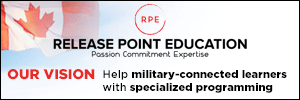By Milana Madzarac School of Pharmacy
Being able to understand the medications you take should be a given. However, many people struggle to understand what to expect from the medications they're taking and how to take them effectively.
Waterloo's clinical associate professor, Dr. Tejal Patel, has teamed up with QRxDigital to include QR codes on medication bottles that link to an instructional video that patients can view at home. This seemingly small addition makes a big impact in improving patient knowledge about their medications and ultimately increases medication adherence.
Dr. Sammu Dhaliwall, a hospital pharmacist and relief community pharmacist, along with community pharmacist Navdeep Singh, worked together to create QR-coded medication counselling videos to make medication taking more accessible. Additionally, the pharmacists noticed an increase in diversity in the population and the patients they serve whose first language is not English. As a result, QRxDigital was formed alongside two other founders to bring this idea to the tech space and to create videos in other languages. What they needed next was a researcher to run the research study this is where Patel's team came in.
"The Canadian demographic is more diverse than ever. However, many diverse patients don't have access to medication related information in a manner they can easily relate to," Patel says. "QRxDigital is aiming to develop culturally appropriate videos that educate patients about medications in their primary language."
Punjabi and Portuguese are the first two languages of focus because of the large population of patients in Brampton, Ontario, where the pilot pharmacy is located.
The initial medications to be targeted are ones frequently used by patients visiting the pharmacy atorvastatin, which is used to treat high cholesterol, and metoprolol and ramipril, both used to treat high blood pressure.
"My research teams' whole intention is to investigate the appropriateness and acceptability of each video," Patel says. "We will measure these factors to improve the videos further and ensure they are culturally appropriate."
QR codes will be affixed to the medication bottles. The pharmacy team will ensure the patients and their caregivers understand how to access the video at home.
"We want to understand what the challenges are, how it affects their attitude when taking medications, whether the videos are a good fit for their individual value system, what they liked and didn't like about the videos and do they understand what the videos are trying to convey," Patel says.
Patel will obtain ethical approval for the study and has helped develop methodology and tools to investigate the outcomes. The researchers' next steps are to collect the data, analyze it and interpret the results to better improve the videos and process.
Overall, helping patients understand their medication use can increase health literacy and can impact medication adherence, which has downstream effects such as improving clinical outcomes and decreasing hospitalization.









